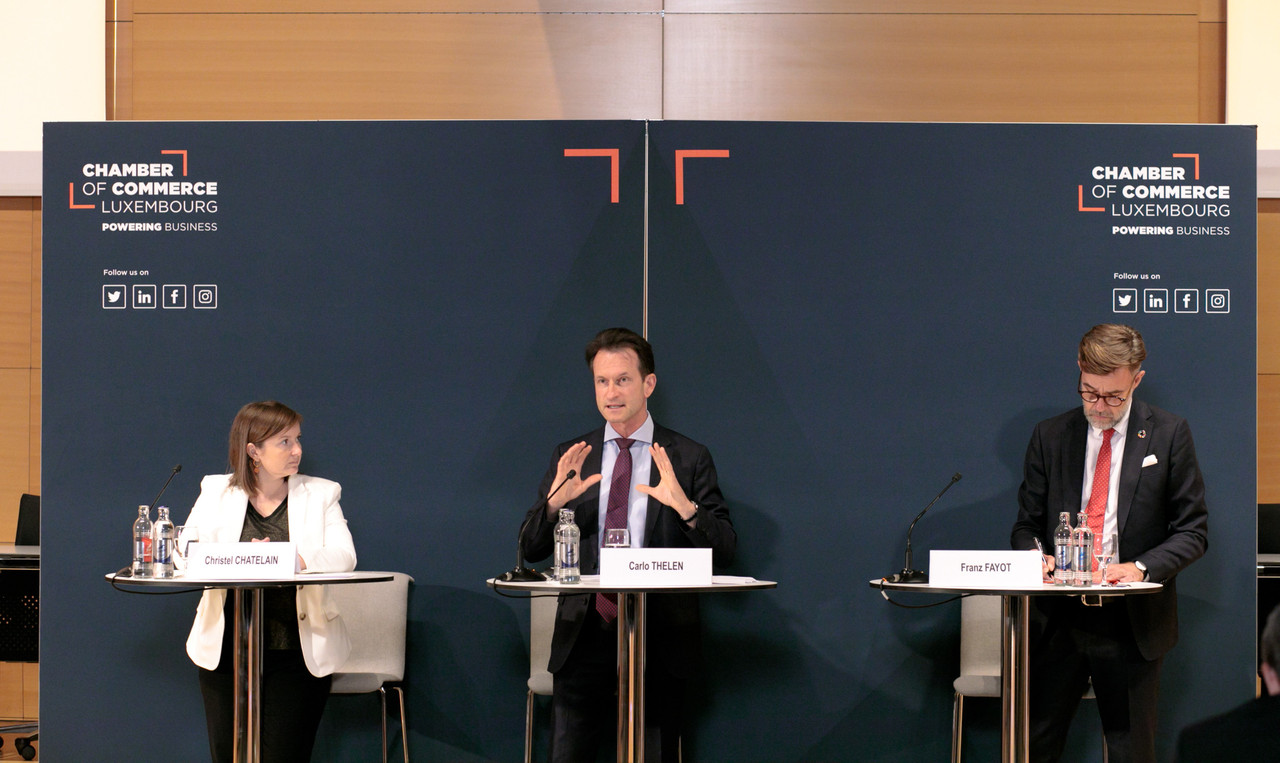“Companies remain in a state of uncertainty and this is a real problem, because they think in the short term and are no longer able to project themselves in the long term”, said Christel Chatelain, director of economic affairs at the Chamber of Commerce. On Tuesday 17 May, in the presence of , director general of the Chamber of Commerce, and the economy minister, (LSAP), she presented the seventh edition of the economy barometer.
564 companies were surveyed between 11 and 29 April. The results show that 26% of the companies declare an increase in their activity over the last six months, whereas in the first half of the year they were expecting an increase of 42% in their activity. Similarly, 24% of companies reported a drop in business, compared to 10% in the last survey.
China's threat to world trade
“There are some sectors that are suffering more than others from the Russia-Ukraine conflict, as was the case during the pandemic. Financial services and other services are seeing an increase in activity, but sectors such as trade, transport and hotels and restaurants are seeing a decrease in activity. And worse, they expect their profitability to deteriorate,” said Chatelain.
Planned investments remain stable, but companies are focusing on necessary investments, such as the replacement of machinery. They do not intend to make disruptive investments. “However, they should perhaps take advantage of this period to transform their way of working, and make green investments for example,” she added.
Read also
Companies, which had become optimistic a few months ago with the improvement of the sanitary crisis, must now face the consequences of the Ukraine-Russia war which began at the end of February. “We are indeed witnessing a surge in prices and production costs, as well as a surge in raw materials,” confirms Thelen, director general of the Luxembourg Chamber of Commerce. He adds: “Global growth has been revised downwards for 2022 and 2023 largely because of the repercussions of the war in Ukraine, and there is also the Chinese threat to global trade, as activity in their economy slows down very sharply, particularly in services.”
Breaking the vicious circle
In Luxembourg “the trends are towards a slowdown in GDP growth, a rising inflation rate in the short term, and we need to get out of the vicious circle. Costs that are fixed, rising and accumulating lead to a drop in the competitiveness of companies, delayed or even cancelled investments, and therefore a drop in the attractiveness of Luxembourg,” says Thelen.
For economy minister Fayot, “the country must retain its competitive advantages, which is why we are putting in place numerous aids for companies, such as Fit 4 Sustainability. There is also the challenge of decarbonisation, which must be considered within a European framework.”
This story was first published in French on . It has been translated and edited for Delano.
